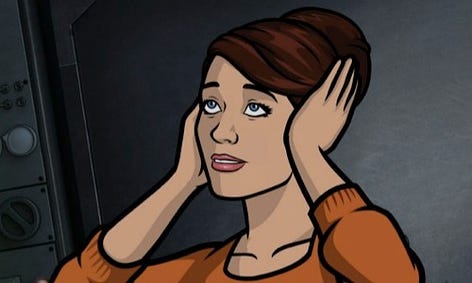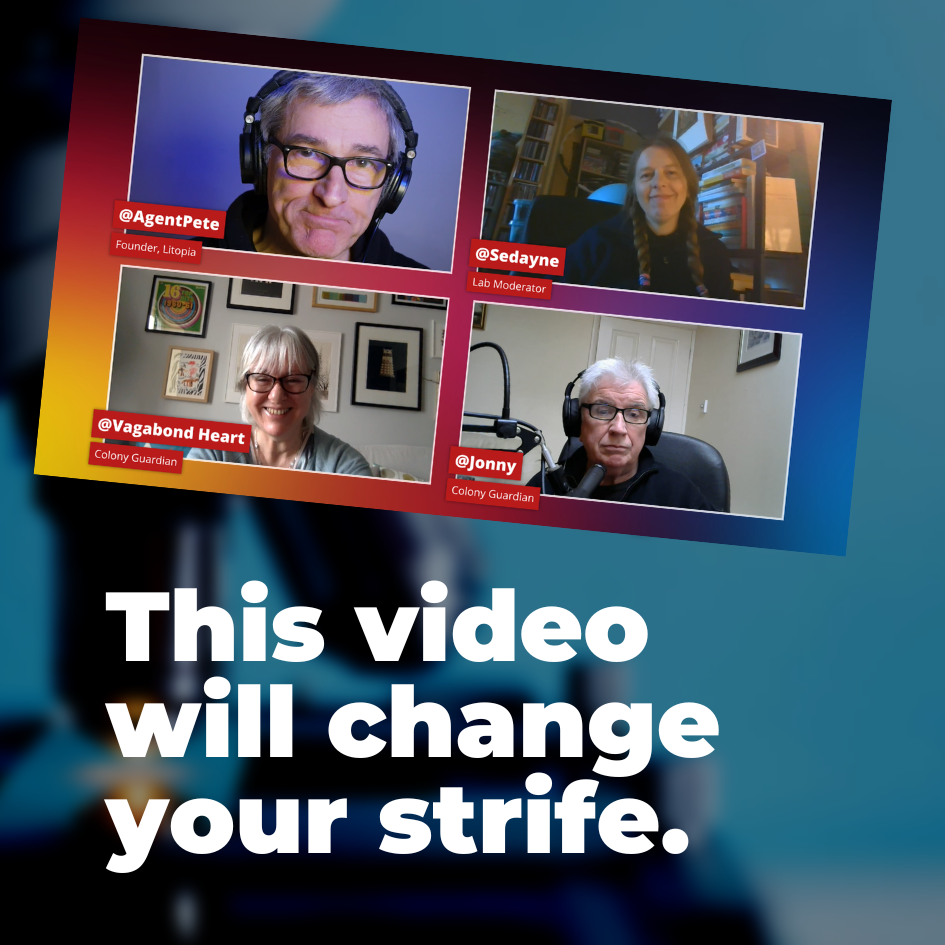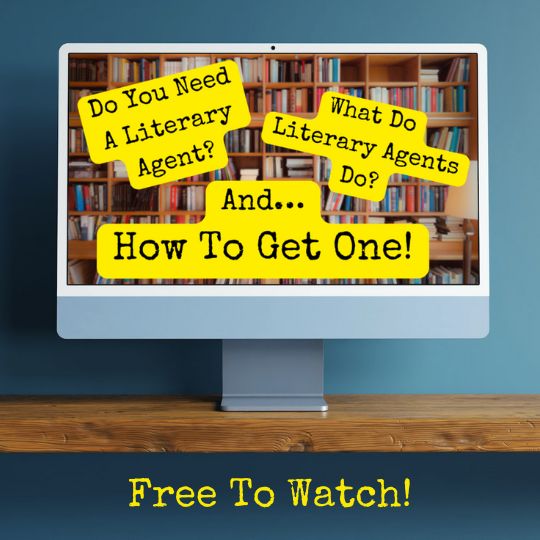This newsletter just came to me.
How can literary agents either ignore my submission completely or send me the briefest rejection email?
|  | |
You submitted a first-rate book proposal and strong pitch letter. Then what? The agent never acknowledged receiving them – or, eventually replied saying “Thank you for your submission. It’s not right for us at this time”.
You wonder what that’s supposed to mean, exactly? If you’d sent it a week earlier, the time would have been right? Need you resend it in six months when whatever is not right becomes right?
Whatever - it’s bad manners.
No. It’s worse; it’s annoying. Unprofessional. It’s arrogant. Infuriating. What kind of crazy stupid process is this? What kind of people receive a message containing evidence of substantial thought and work and treat it as nothing?
How can I put this?
There’s no nice way to put this.
Nobody in publishing gives a fuck about your book.
Now calm down. Take it easy. Put the gun away. Remember - you don’t shoot the messenger. Hear me out. No, I do not bring glad tidings. I offer honesty and clarity about how our little world of books works. If you can deal with that, there’s hope plus some thoughts about how to make it as a writer.
Thank you for holstering your piece. Let’s get into it.
I hear you… indifference is tough to handle. I
hate it. The wall of silence or disdaining glance. The teenager’s weapon of choice, an endless supply of not giving a shite. An argument would be so much better. But who are you arguing with? We agents are not your opposition. The
marketplace is your implacable foe. We agents are the just Bad News Bears, – and reality is a market with too many books and too many people writing more. That’s the core fact to grasp.
So, your book isn’t right for us at this time? What next?
Well, you could face the market directly and bypass agents by self-publishing. That bypasses publishers too. Many writers make a success of it; some create bestsellers on an industrial scale.
Self-publishing can work for subject-led non-fiction if you already have an established following or fanbase for your knowledge – but that doesn’t count in this discussion. If you had a significant public profile, we agents would have replied to your submission – and quickly.
Self-publishing works well for digital books – eBooks and audiobooks – which are the most popular format for genre fiction. Print-On-Demand (POD) technology allows readers get a physical book too, but those POD copies are expensive to make. The biggest self-published authors can print books like a traditional publisher. Their market power is impressive. A successful digital publisher admitted to me recently that they avoid the entire massively popular Romance genre in the US because he’s intimidated by the self-publishing Romance authors who dominate the bestseller lists. They are such extraordinary marketeers that a traditional publisher struggles to compete – and Romance, depending on how you calculate, is the biggest genre of all.
Two facts about self-publishing though. You need sufficient funds for the making and marketing of your books. Plus you need to want to become a publishing entrepreneur (at least as much as you want to write) and get expert at it.
Self-publishing doesn’t often work for literary fiction.
Most of its readers prefer the physical book.
My own literary reading feels like it belongs closer to me than my escapist reads. Maybe it’s because we want those who know us to see our borrowed depths? I find that touching. We do pick up our favourite books sometimes, skipping past the ones we haven’t finished or never begun. I’ve got
Finnegan’s Wake on my shelf. What justifying purpose can I offer for that? Whatever the cause, a large proportion of literary readers like a physical book. Literary needs press reviews and prize attention and, for now, media reviewers and prizes ignore digital-led titles. All this will change over time.
I’ve noticed that literary writers and academics are the most likely to be high-handed about engaging with the business of books. They want a division – like that separating Church and State – between their creativity and their communication with readers.
Scrutinise your motives here.
If you want the attention you must fight for it.
The first huge market test is getting an agent. If you’re determined to bypass agents, you could approach publishers directly. But if they respond, they are seeing something obvious that we agents would have seen and responded to.
For example, some digital publishers accept direct submissions from genre authors who want to create strong stories with big ‘hooks’ and can produce books at a pace. But if you’re answering their call, you still need an agent to get their best deal and help ensure they deliver on it. Mostly publishers don’t want to hear from authors. They’ll contact you if they can see your book’s potential. But if that’s not obvious, they’d rather we agents act as a filter to sieve you out from the thousands of others.
So, we’re back to your hunt for representation and the indifference of agents.
That’s why we’re swimming in submissions over here. Because it’s only agents who accept submissions from everyone.
Think about how that must work.
In our office, we agents read them. Some are first reviewed by an exceptionally talented writer who works with us. It doesn’t take long to know a submission isn’t for us. But there are hundreds more to review. Even that little time adds up. Then there are the books that grip us. How long does it take you to read novel? Ten or twenty hours? We can finish a whole requested manuscript only to decide there’s something vital missing for us in the telling of the story. It’s unpleasant for the author to get our rejection. It’s no fun to send either. But we must crack on. We’ve spent a day on a book whose future isn’t with us.
Still, you say, we could respond more fully, give the author encouragement and direction, offer our industry insight. In an ideal world we would. This world looking ideal to you?
Occasionally, I
will add a note to the rejection indicating my thinking…
I used to make a habit of it – a naïve error.
Nineteen years ago when I started as an agent, the cavalier rejection of book submissions by literary agencies bothered me. I thought of those writers working on their novel, sending it to an agent and getting nothing of value in return.
I decided to be different.
I’d read a bit and decide against the book, either because it wasn’t good or it wasn’t my kind of thing. My email response would explain my rejection in a paragraph or two. Almost every writer replied appreciatively… and very quickly. That made me feel nice. Their notes contained detailed responses to all my objections. Some defended their book and asked that I think again. Others were commencing a rewrite, based on my feedback, and would revert to me soon with the new manuscript. In no time I had created a collection of obligations I didn’t want. Unless I said otherwise, my real message was that our relationship had not started. They were free to send me a submission again, and I would read it, but I wasn’t seeking it.
Gradually, I found sufficient authors whose books and careers required my full-time energy. My responsibility was to them, the authors contracted with me – remember, I wasn’t earning any money until I found deals for those authors. Within that first year, I abandoned rejection email chats and reverted to the “thank you for your submission but” industry practice. I feel no guilt about that.
We are not your helper.
There are writer’s groups, retreats, courses, and independent editors for that. We are agent to our authors. When you become one of them, I will give a massive fuck about all your books for as long as we are together.
It’s on you to make us think your book is worthwhile. Are you here to find a readership? To earn some of your living from books? To have the acknowledgement of others that what you have written is good?
If so, unpack your resentment and dissolve the rage. Store away the delicate creative part of you in a safe place. The market is vast and indifferent. It requires strength. Keep hunting for an agent. Refine your proposal with every useful additional support you can find. If you think we’re brutish vulgarians reducing your exquisite tapestry to mere product, then imagine (amongst all those books) how little time any publisher’s salesperson has to discuss a particular title with Waterstones. Your book is privileged if it has three sentences in that conversation; your book is unlikely to matter to your publisher for long and highly unlikely to ever matter to a book retailer. No matter how big your success, there’s too many other books. Even your individual editor may only care for a very little while.
It's up to you to make an agent care because we care for your career.
Don’t imagine we should feel guilty for ignoring you.
You believe we owe a duty to literature? Is that why you write?
I do see small independent imprints who do meaningful service to literature. I also see individual editors working hard to win attention for an exceptional original book. But don’t rely on finding such people. Young publishers are not being trained to value it as a perspective.
If you want attention you must learn to win it.
Keep faith.
If your book proposal is exceptionally good and represents a plausible commercial opportunity, it will not get ignored. If overlooked by a few agencies, one will eventually spot it. Great books find their agent. Which doesn’t necessarily mean they find the readership they deserve, but that’s a story for another day.







